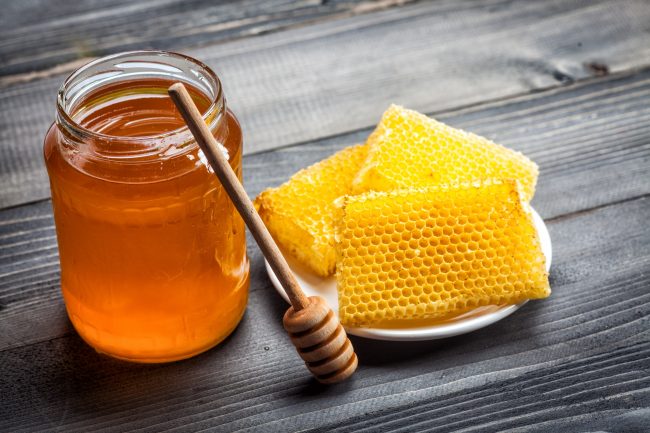Some people tout raw honey as a magical cure-all. Whether that’s true or not is up for debate. But one thing’s for sure: if the benefits of raw honey are all a farce, the sweet stuff wins for longest-running food fad in history!
Honey has been used in Eastern medicine practices for thousands of years. In fact, ancient Egyptians believed honey was a gift for the gods and included pots of honey in burial ceremonies. The oldest sample of honey was discovered in Egyptian pyramids and was 3,000 years old! And you know what? It was still edible. Honey is one of the few foods with an eternal expiration date due to its unique balance of hydrogen peroxide, acidity and low water content.
Honey sure does sound regal, with such a long-standing history to back it up. However, there are quite a few questions still buzzing on your mind. Hopefully, this Q&A will offer some clarity.
How is raw honey different from commercial honey?
The difference between the honeys lies in the level of processing. Commercial honey is often pasteurized to destroy pathogenic bacteria and give it the classic clear, golden color you’ve grown to expect in the jar. This ensures a safe and pleasing product for the masses. Raw honey, on the other hand, is often darker in color, has a thicker consistency and may hold the most health benefit. After all, it doesn’t endure the same processing other honeys undergo.
Is raw honey better than regular honey?
As noted above, commercial honey is often heat-treated, which destroys pathogenic bacteria and improves the color and consistency of the product. While this ensures a more palate-pleasing honey, it may affect the overall health benefits. Raw honey is naturally boasting with antioxidants, antibacterial properties and antifungal properties. However, these beneficial components can also be destroyed by heat. So store your raw honey in a cool, dry place. Overall, if you’re looking for a sweetener, regular honey may be perfect for the job. If you wish to add honey to your daily regimen for its health benefits, you may be better off choosing a raw, unfiltered product. Be sure to look for honey that’s dark in color for maximum antioxidant load.
Can raw honey help control my seasonal allergies?
While some studies suggest consuming raw honey may alleviate symptoms of seasonal allergies, the research is limited and inconsistent. The seasonal allergy benefit from raw honey is more likely related to level of bee pollen included in the product. The research is still very new. That being said, as long as you account for the extra calories and added sugar, having a cup of honey-sweetened-tea should be safe to add to your seasonal allergy regimen. During peak allergy season, try 1 teaspoon of raw, unfiltered honey to 1 cup of warm water with a slice of lemon to assist with symptoms.
Is raw honey safe to give to my children?
Yes, depending on age. Honey of all forms should not be introduced to children until they are over one year old. All honey holds the risk of containing botulism toxin and can be very dangerous for infants. Older children, however, are clear to enjoy raw honey and its health benefits.
What are some other ways I can use raw honey?
Raw honey can be used in a variety ways. Due to the amount of natural hydrogen peroxide, antibacterials and antifungals, honey can be used as a wound healing treatment. Simply cover the affected area with a layer of raw, unfiltered honey and top with a light bandage. This can help keep the area clean and promote faster healing. Honey’s wonderfully thick consistency may also help during cough and cold season. Soothe a sore throat by taking 1 teaspoon of honey by itself or in a cup of warm water.
Honey in all forms is deliciously sweet, but raw honey may hold some extra benefit in its antioxidant, antibacterial and antifungal capacity. Keep in mind that one teaspoon of honey provides 21 calories and 6 grams of added sugar. This should be counted in your overall nutrient intake for the day. While research is limited regarding its benefit for seasonal allergies, raw honey is still a fine addition to any well-balanced diet or health regimen.
Share how you use raw honey by posting a picture on Instagram with the hashtag #TLCwithrawhoney.

